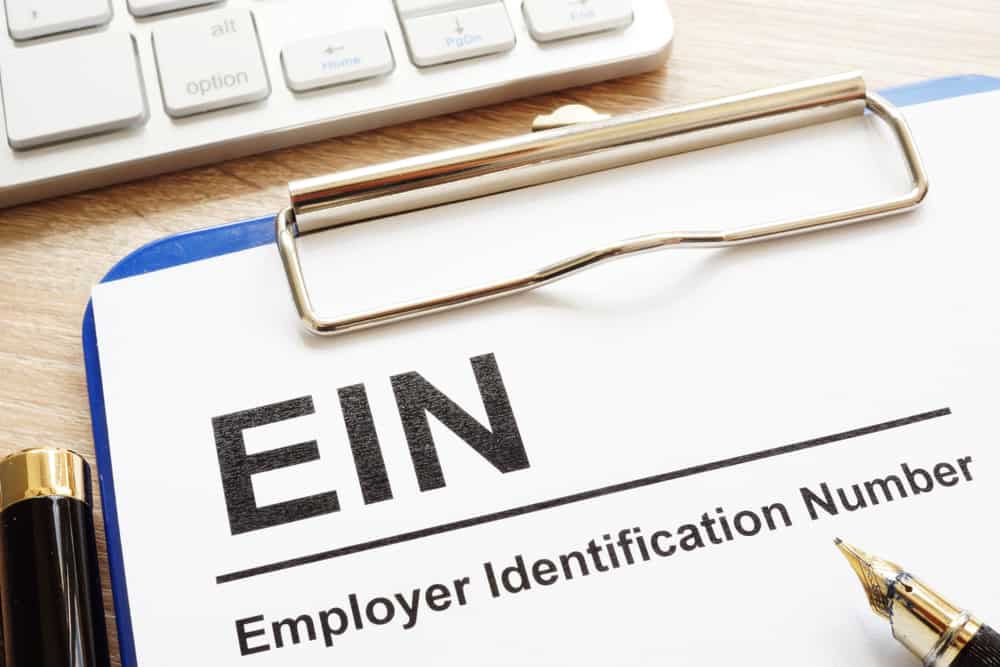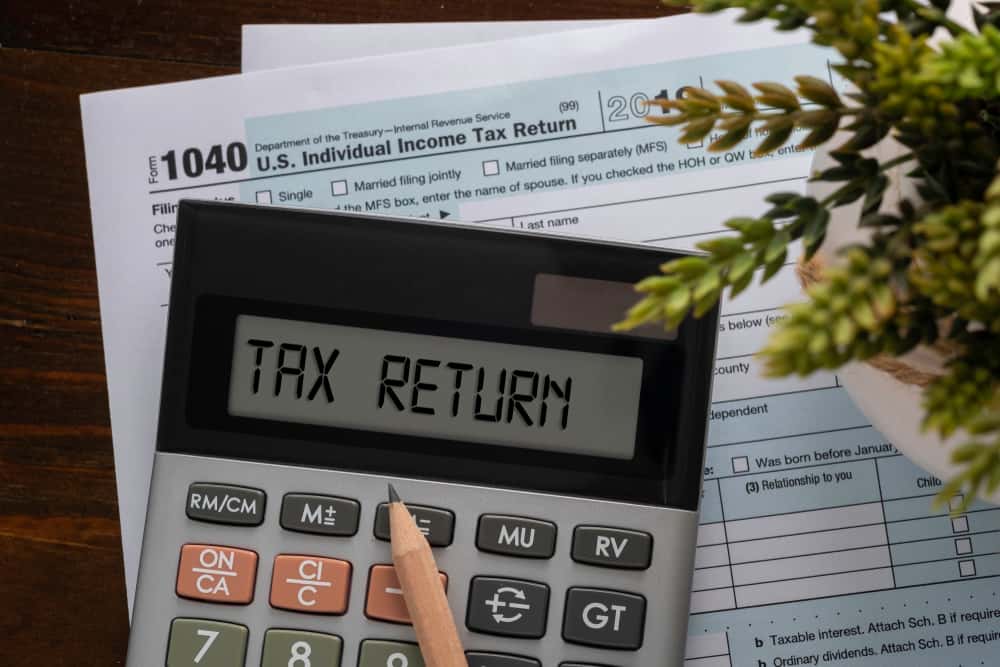If you’re looking to start a business, or you’ve already started one but you want to incorporate it, one of the steps you need to complete before your business starts operating is obtaining an Employee Identification Number. An EIN is crucial for your business and comes with many benefits that will help you manage it and protect it. To help you get better acquainted with EIN, in the following lines, we’ll cover the question of “What is an Employee Identification Number” (EIN) in great detail.
We’ll start off by providing a definition for an EIN and explaining what it’s primarily used for. Then we’ll move on to sharing the criteria that will help you determine whether or not you need an EIN, and some of the best benefits you can expect to access once you obtain your EIN. And we’ll finish this article with a detailed FAQ section that will help answer some pressing questions, like “Does an EIN expire?”.
For starters, let’s define what an EIN is.
What Is an EIN?

An Employee Identification Number (EIN) is a nine-digit number that’s assigned to any business entity by the Internal Revenue Service. Think of it as a social security number for your business. EINs also go by the name Federal Tax ID Numbers or a Federal Employer Identification Number.
One of the reasons why business entities need to obtain an EIN is to report taxes. Businesses require an EIN to pay their federal taxes online and file annual tax returns. Essentially, if your business pays taxes of any kind, chances are you will require an EIN. In addition to needing EIN for tax purposes, you will also require an EIN if you want to open a business bank account, issue payroll, and apply for a business license.
You can apply for an EIN directly through the Internal Revenue Service website.
EINs don’t have an expiration date, nor are they reissued to other businesses in case the business closes its EIN.
Do I Need an EIN?
Now that you’re aware of what exactly an EIN is, it’s time to go over some of the criteria you have to meet to get an EIN.
The first requirement for obtaining an EIN is that your business is located and operates in the US. The business owner needs to own a social security number, in addition to their individual taxpayer identification number.
You will need to get an EIN if:
- Your business has employees;
- If it operates as an LLC, sole proprietorship, non-profit organization, S corporation, or a partnership;
- If your business is an estate or a trust;
- If you have a government agency;
- If you file tax returns in these categories: Employment, Alcohol, Tobacco, Firearms, and Excise;
- If you have a Keogh plan;
Apart from that, there are no limitations as to the size of the business, the number of employees and the number of owners a business has.

Who Doesn’t Need an EIN?
There are some types of businesses that don’t require an EIN, such as sole proprietors. While they’re not legally obliged to get one, some businesses still choose to obtain an EIN. It can serve to protect against identity theft, so some smaller businesses choose to err on the side of caution.
Do I Need More Than One EIN?
You might’ve heard of some businesses having more than one EIN. This is dependent on the state where you’re conducting your business – some states require you to have a separate EIN for different types of taxes. However, other states allow you to report all your taxes under one number.
To be safe, we advise you to research the laws and regulations of the state in which your business will be located prior to starting it.
Benefits of Applying for an EIN
EINs are a requirement for some types of businesses, but they also come with certain benefits that will help your business. Here are some of the benefits you can expect to get if you apply for an EIN, even if it’s not a requirement for your business.
It Remains the Same

One of the key benefits of getting an EIN is that you won’t have to change it every year – once you obtain an EIN, it won’t expire unless you decide to close it.
It Protects You from Tax Penalties and Enables Tax Reductions
Obtaining an EIN is a great way to protect yourself from tax penalties and become eligible for tax reductions. For instance, you can write off a personal expense such as using your private vehicle in your tax return and protect yourself from IRS audits.
It’s Amazing if You’re Not From the US
If you’re an entrepreneur who’s not from the US yet you want to start a business, getting an EIN is a wonderful alternative to providing a Social Security Number. It gives you the chance to open a business account and get a credit card, but you might need to follow a few extra steps to apply. The IRS website has all the information you need if you’re an international applicant and if you want to apply by telephone when you’re not in the US.
It Separates Your Personal From Your Business Finances
Getting an EIN is a great way to separate your business finances from your personal finances. Sometimes it’s hard to keep track of our spending and profits on a personal and business level, and obtaining an EIN is a step in the right direction in being more aware of how your personal finances compare to your business ones.
It Helps You Hire Employees More Easily
If you think you’ll want to hire employees for your business down the line, then getting an EIN is a good idea. This will make the hiring process infinitely smoother because you’ll be able to set up a payroll system seamlessly and without wasting any time on the application process.
It Protects You From Identity Theft
Additionally, getting an EIN is an amazing way to protect yourself from identity theft and keep your personal information intact. This is because getting an EIN means you no longer have to share your Social Security Number with your clients or collaborators, so it’s a win-win.
It Adds More Credibility to Your Business

If you’re a sole proprietor or a freelancer, getting an EIN is a great way to add more credibility to your business and increase your client’s trust.
It Helps You Open a Business Account
Some banks don’t allow you to open a business account without providing an EIN, even if your business doesn’t require it. To protect yourself from this situation, it’s a good idea to get an EIN, especially if you’re connected to a bank that has stricter rules.
How to Apply for an EIN
Whether you’re a sole proprietor who’s looking to gain more credibility in the eyes of their clients or you’re an owner of a business with many employees, here are some of the ways you can apply for an EIN.
First things first, it’s important to note that applying for an EIN is a free service courtesy of the IRS. It’s crucial that the business owners apply for an EIN themselves and not leave it in the hands of others.
There are many ways you can go about applying for an EIN.
You could apply online on the official website – it’s one of the easiest and least time-consuming methods. Additionally, when the application gets approved, you don’t have to wait an additional time in order for the EIN to be issued.
If you’re more old-school, you could also apply by fax. Once you download and fill out the application form, all you have to do is fax it to the IRS. When your application gets approved, you will be contacted at the telephone number you provided in your application.
Additionally, applying by mail is also an option. Even though it might be more time-consuming than some of the other ways of applying, it’s a pretty straightforward process. Fill out the required form and mail it to the location provided.
If you’re an international applicant, you can contact the IRS via phone. You’ll be asked the same questions as those in the application form, so the person calling has to be the person who is in charge of obtaining the EIN. The telephone number for contacting them is 267-941-1099 and you can do so anywhere between 6 a.m. and 11 p.m.
When Do I Need a New EIN?

Your EIN is effective immediately after your application is completed. In addition, as we mentioned earlier, it’s yours for the entirety of your business. However, there are certain exceptions to this rule which you need to be wary of. So, when do you need a new EIN?
You need to get an EIN for your business if you ever decide to change the structure and the ownership of your business. To provide an example, if you decide to incorporate, you’ll have to obtain a new EIN. If you change the structure from a partnership to an LLC, for instance, you’ll also have to go through the process of getting a new EIN.
You might be worried about losing your EIN and having to go through the hassle of applying for a new one again. Don’t worry – in case you ever misplace your number, you can always contact the IRS for help or simply shift through some of your old tax documents where you’ve included your EIN.
How Long Does It Take to Get an EIN?
Another common question people who are applying for an EIN have is: how long will it take until I get my number?
The time it takes for you to get a hold of your number will depend on the way you decide to submit your application. For instance, applying online guarantees you get the fastest answer. If you decide to fax or mail the IRS, you will have to wait for a longer time to receive your number. Generally speaking, the wait time for fax is around two to three weeks, whereas the wait time for mail is up to four weeks.
How to Close Your EIN?

When you apply for an EIN, it’s yours for the rest of your business’s lifetime. However, there are certain reasons why you might want to close your EIN, so, in this section, we’ll include the steps you need to take if you want your EIN to be permanently closed.
If you get an EIN and you decide that you don’t need it down the line, you have to mail a physical letter to the IRS. The letter has to include information like the name of your business, the location of your business, and the reason why you’ve decided to close the number. The EIN will remain in existence, but it’ll no longer be associated with your account. Instead, it will be reissued and assigned to a different business entity.
EIN Identity Theft
Getting an EIN protects you from identity theft to a certain extent. However, accidents happen and you should be wary of the steps you need to take in case someone uses your business name or your EIN without your permission.
You’ll need to complete a Business Identity Theft Affidavit where you include both personal and business information. Additionally, you have to let them know the reason why you’re filing the form and explain the situation in detail.
If you have any other questions concerning EIN identity theft, check out the IRS website for more details as to which resources you can use in case this occurs.
What Is the Difference Between an EIN and a TIN?

TIN stands for Taxpayer Identification Number. Since they sound similar and seemingly have the same purpose, it can be hard to differentiate between the two.
A TIN is an umbrella term that can stand for any identification number. However, an EIN is a type of TIN that acts as a social security number for your business. EINs are more common for complex business structures, such as corporations, partnerships, and trusts, whereas TIN is most commonly associated with sole proprietorships. Some other numbers that fall under the category of TIN include EIN, SSN, ITIN, PTIN.
FAQs
Is EIN the Same as Tax ID?
Yes, EINs can also go by the name of Federal Tax Identification Numbers. It’s a specific number that’s assigned to business entities which have employees. The main purpose of EINs is to file tax returns.
Why Is EIN so Important?
There are many benefits that come with applying for an EIN. For instance, they can help international entrepreneurs who aren’t from the US and don’t have a social security number. Additionally, it helps protect you from identity theft, it makes the job of hiring employees easier, and it adds more credibility to your business.
Is EIN Same as SSN?
No, EINs and SSNs have a different purpose. Your EIN is tied to your business entity and it’s used to file tax returns, whereas your SSN is used to track your income and determine your benefits.
Is My EIN Linked to my Social Security Number?
No, your EIN has no ties to your SSN.
Does EIN Cost Money?
Applying for an EIN is a service completely free of charge.
Does an EIN expire?
No, an EIN doesn’t expire. Once you have obtained an EIN, you won’t have to reissue it ever again.
Final Thoughts
We hope you enjoyed our article on “What is an Employee Identification Number” and that we helped you get informed about the reasons why you should get an EIN and some of the benefits associated with it.
Getting an EIN is only a requirement for complex business structures, like corporations and LLCs. However, you can still apply for an EIN if you have a sole proprietorship – you get to enjoy certain benefits, like your business appearing more credible. The application process is quite easy – you can apply for an EIN online, via mail, fax, or phone.
